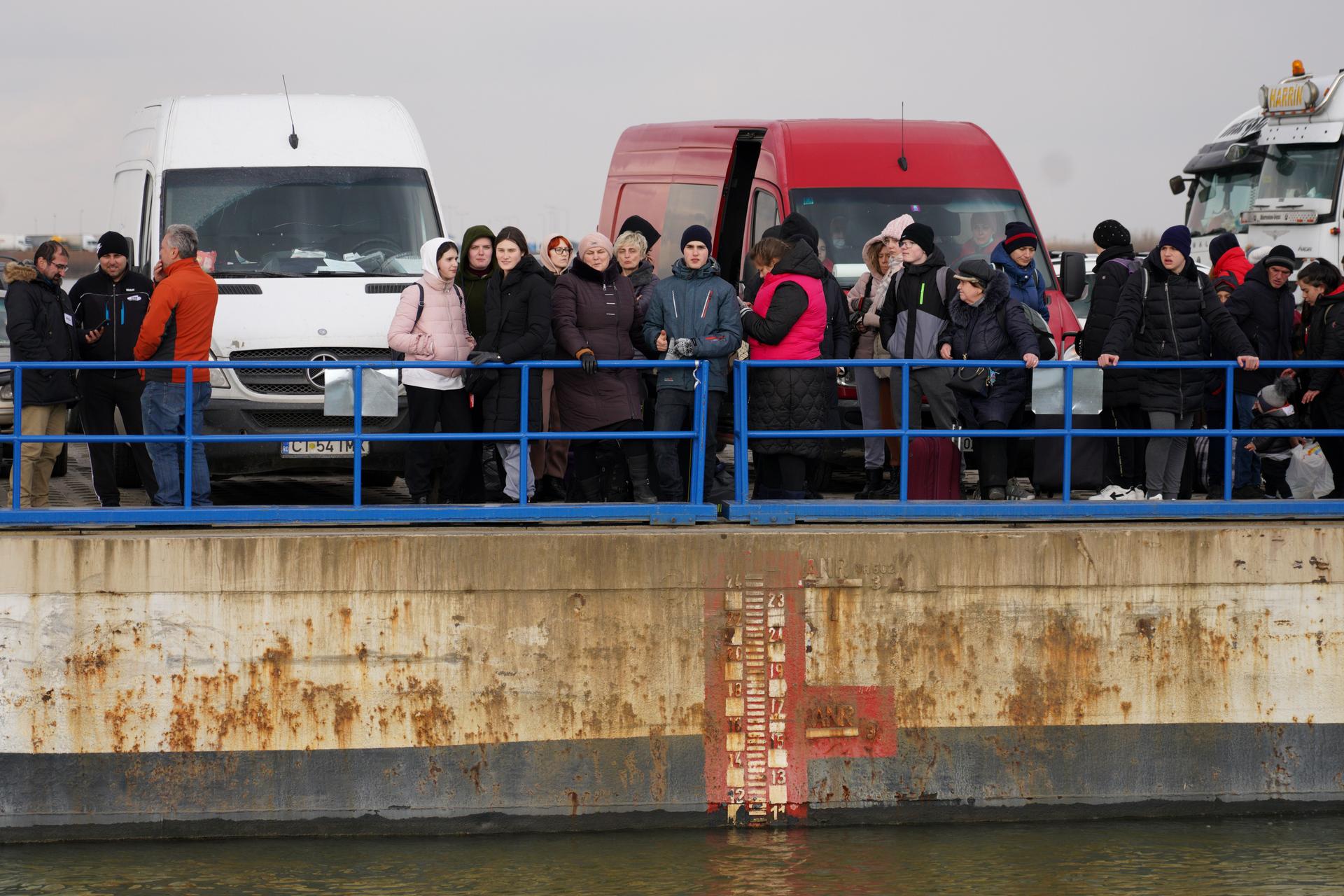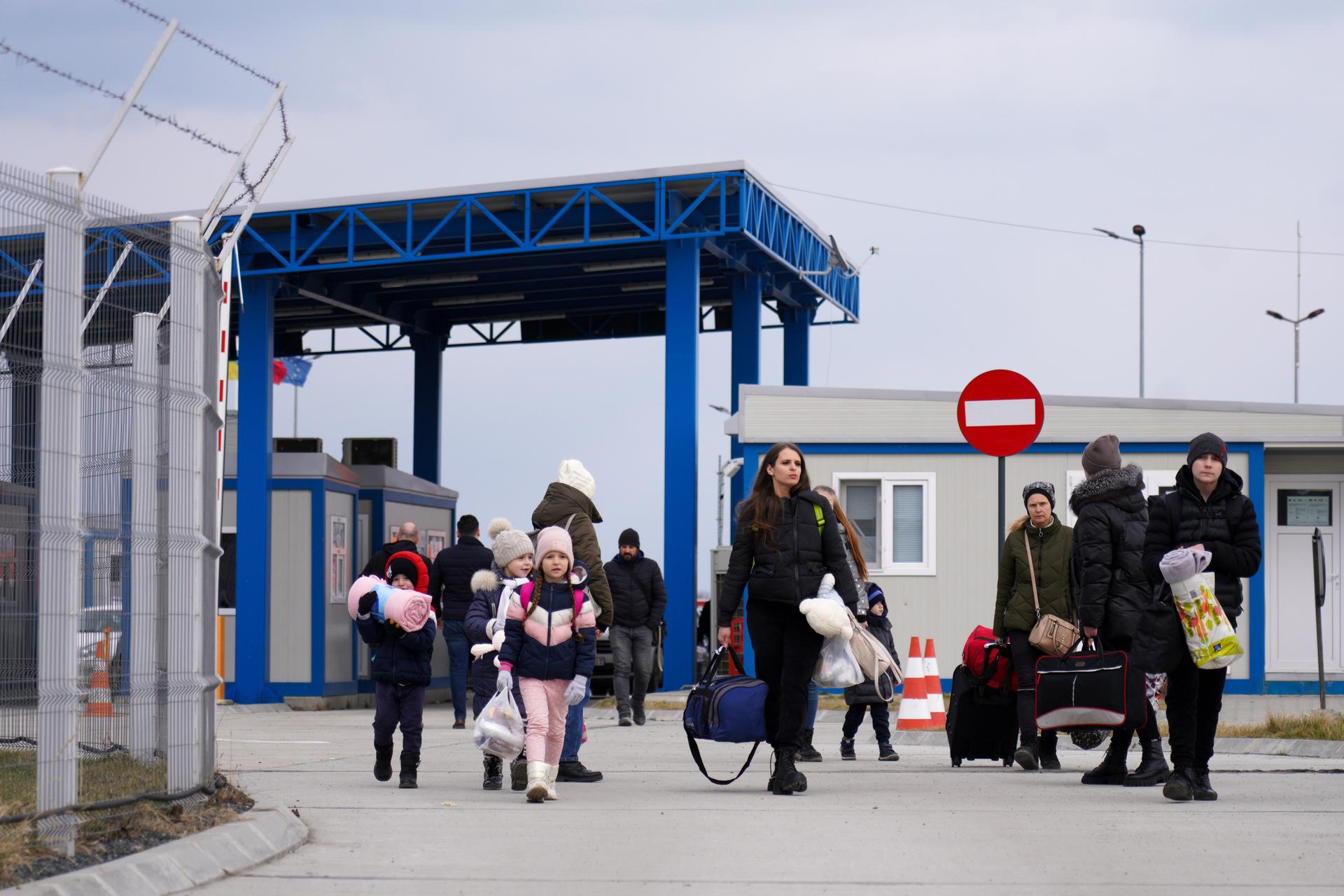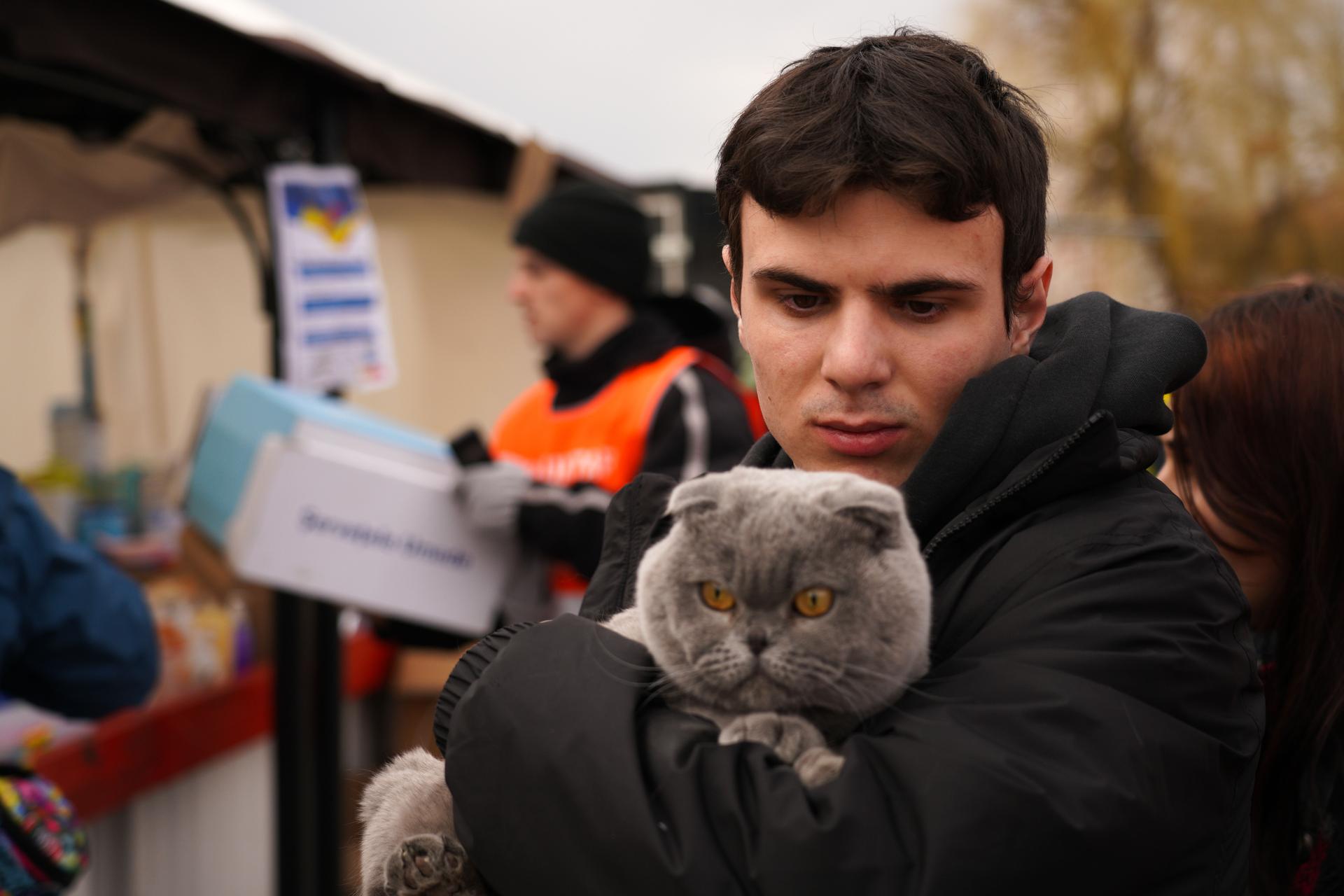In Isaccea, on Romania’s southern border, a Ukrainian refugee named Anna has just arrived at customs and is having her passport checked.
Related: Many Ukrainians face a future of lasting psychological wounds from the Russian invasion
Anna asked that her last name not be used because her parents are still in the city of Kharkiv. The bombing has been really awful there, she explained.

“I was born in Kharkiv, I studied in Kharkiv, I worked in Kharkiv, and it was my one home in this world. And now, I don’t have it.”
“I was born in Kharkiv, I studied in Kharkiv, I worked in Kharkiv, and it was my one home in this world. And now, I don’t have it,” Anna said.
Related: The Ukrainian city of Lviv is a sanctuary. But a humanitarian crisis is deepening.

In Kharkiv, Anna worked as an attorney. After Russia began its invasion in Ukraine on Feb. 24, her family decided that she would leave Ukraine on her own, so she could find work abroad and send money home to help them get through the war.
“Actually, I [took] some classes in international law. And why did I do it if, in real life, it doesn’t work?” she said. “I saw, by my own eyes, dead people on the [ground] in my native city … and Putin can do this without any punishment.”
Related: ‘We have compassion for them’: Romania is taking in thousands of Ukrainian refugees

Anna is among the 2 million people who have fled Ukraine in less than two weeks, the UN refugee agency said on Tuesday. Many are also internally displaced as Russian forces continue to advance on the country from multiple directions.
Related: ‘The risk of escalation is too great’ for a no-fly zone in Ukraine, analyst explains
A few hours from the city of Odessa, fears of an attack there have led thousands of people to flee across the border to Romania. Every few hours, a boat full of people and cars makes its way across the Danube River to customs in Isaccea.

Once at customs, refugees are directed to inflatable orange tents serving hot tea and sandwiches while they wait to go through passport control.
The refugees from Ukraine are mainly women, children and elderly people. Men, ages 18 to 60, can’t leave Ukraine if they’re eligible for the draft.

Romania has taken in about 82,000 refugees, and its neighbor Moldova has taken in the name number. Separately, many people are just passing through both countries en route to Western Europe.
According to the UN refugee agency, approximately 260,000 refugees have fled Ukraine through Moldovan border crossings over the past two weeks.

The community has stepped up to help here — many locals are volunteering at shelters and collecting donations, offering beds in their own homes.

But it’s just a temporary solution. Both Romania and Moldova are among the poorest countries in Europe and don’t have the infrastructure to accommodate large numbers of refugees.

Moldova is particularly vulnerable if this war continues and Russia’s invasion expands past Ukraine’s borders.

That’s because Moldova does not belong to the EU or NATO, and it has a breakaway border region called Transnistria that favors Russia. This has Moldovans worried that the country could be Russia’s next target.

Romania seems a bit more secure as it has protection through NATO.
The country is also becoming an important part of supply routes into Ukraine. With Ukraine’s airspace closed to civilian flights, trucks and vans are a common sight passing through these border crossings, bringing medical supplies and food into Ukrainian cities, and driving refugees into safety out of the country.
Raul Stef contributed to this report.
Our coverage reaches millions each week, but only a small fraction of listeners contribute to sustain our program. We still need 224 more people to donate $100 or $10/monthly to unlock our $67,000 match. Will you help us get there today?
